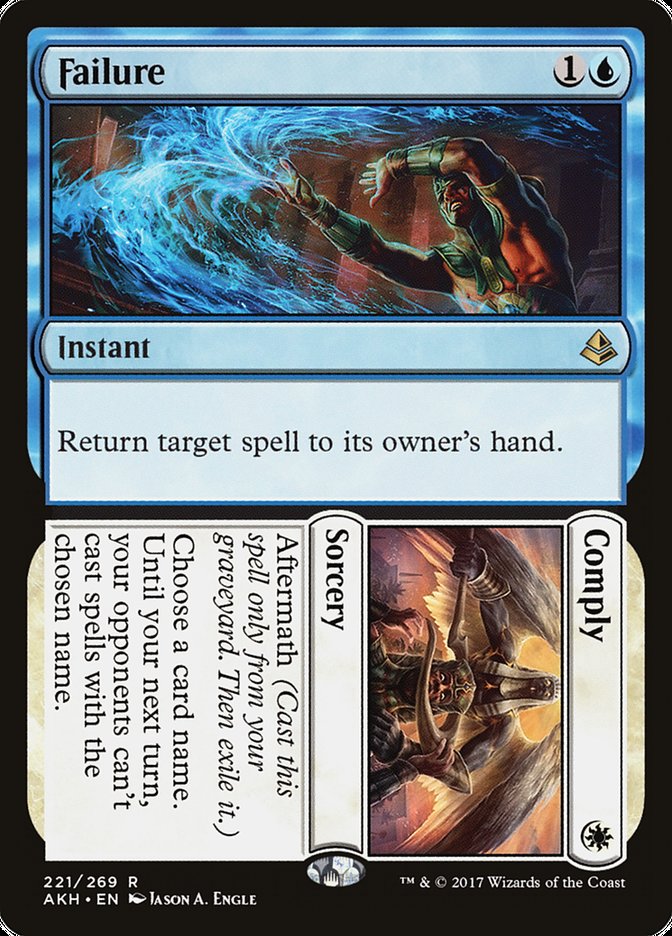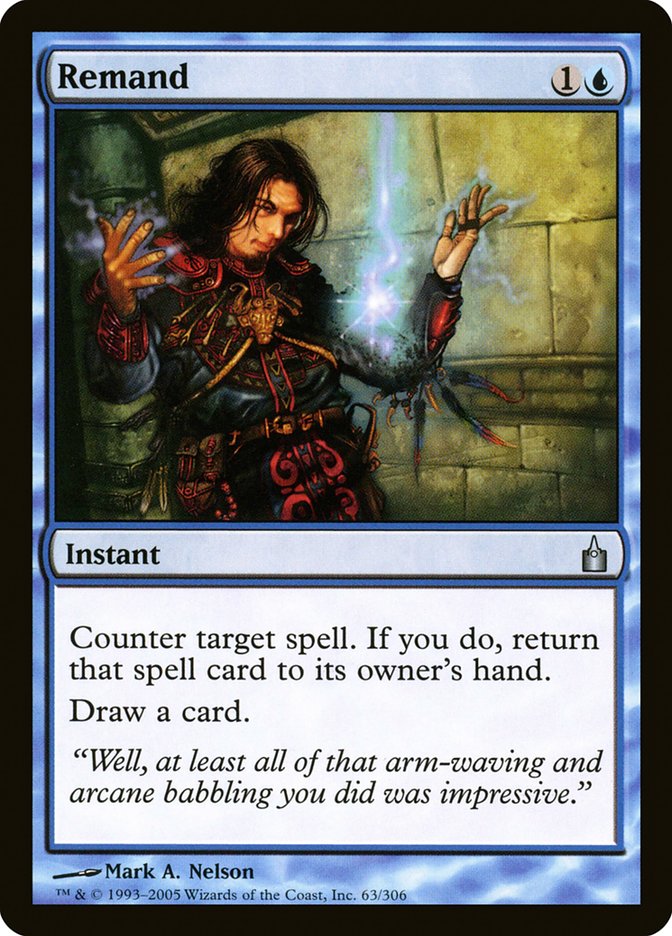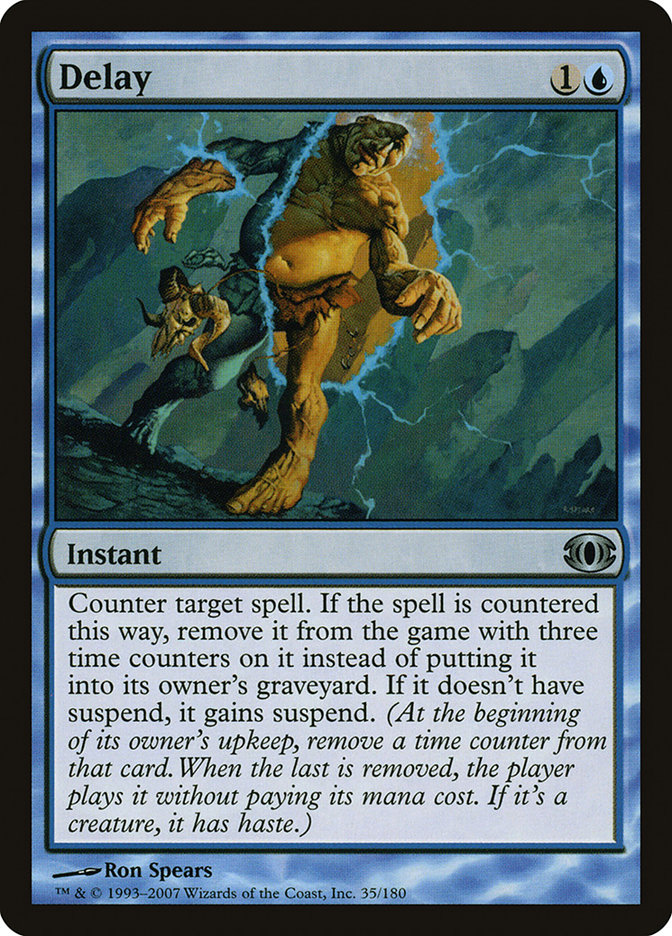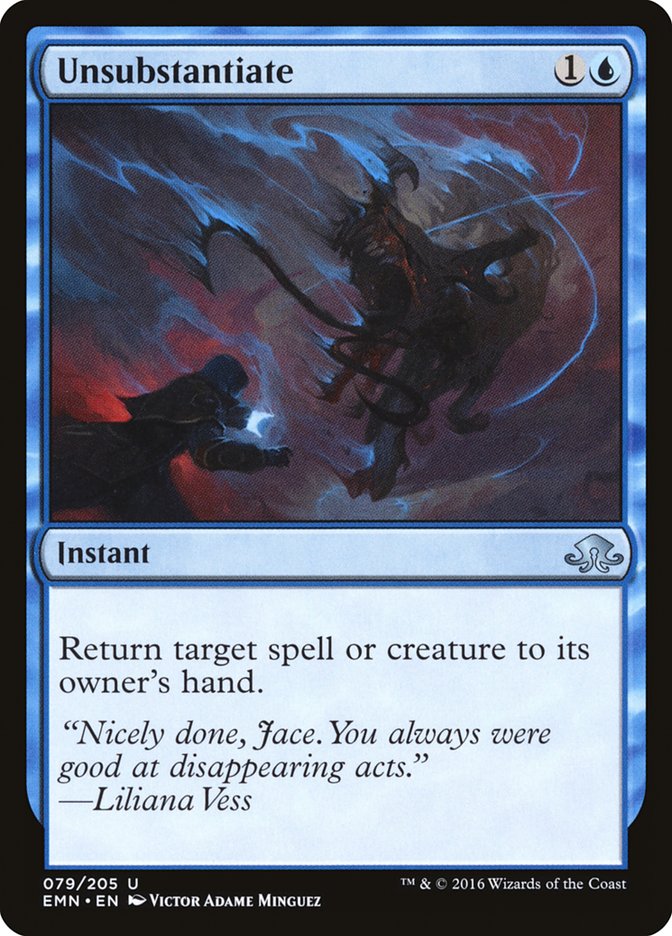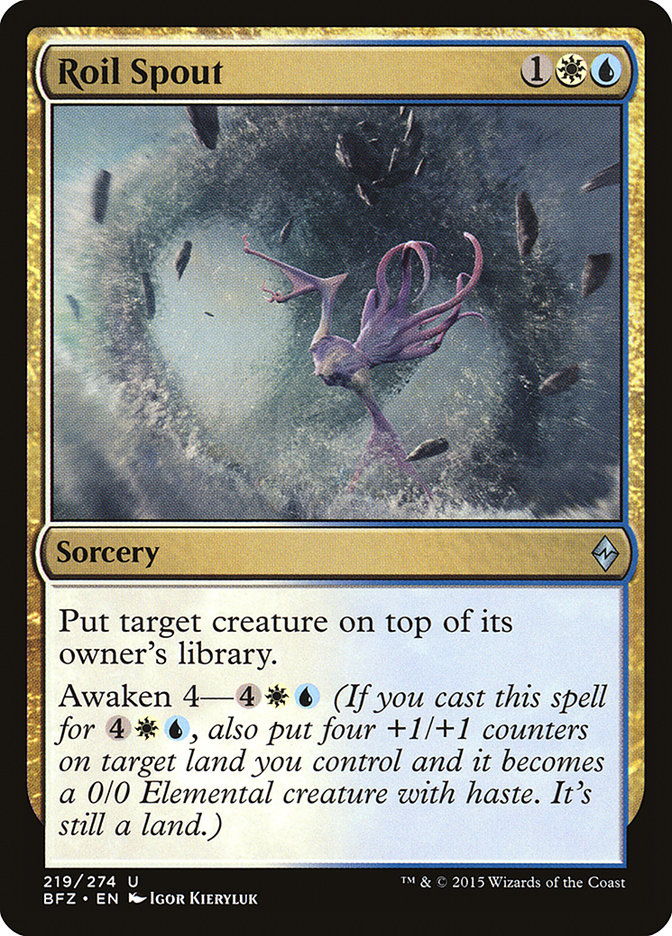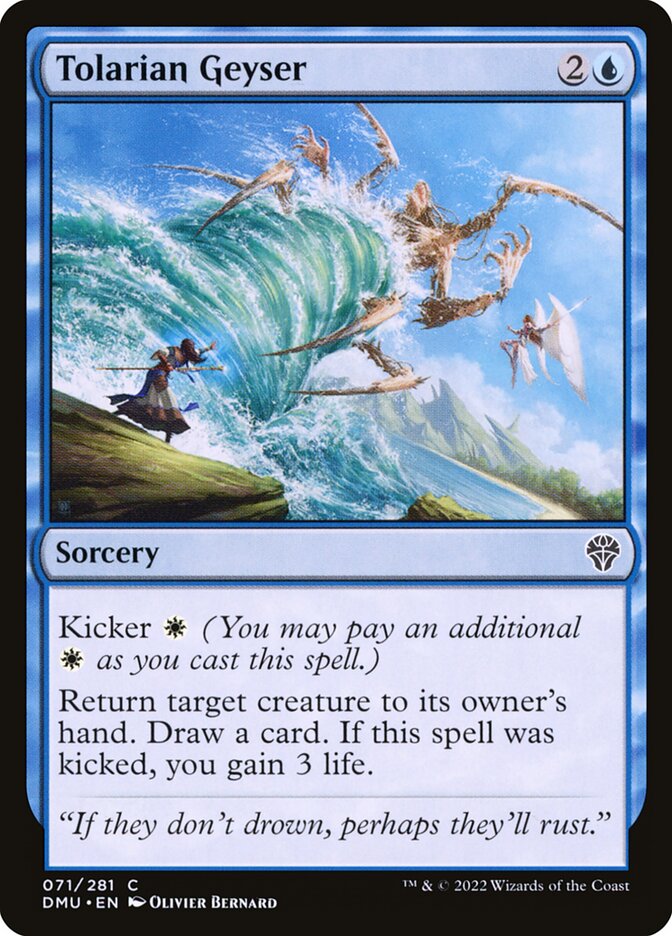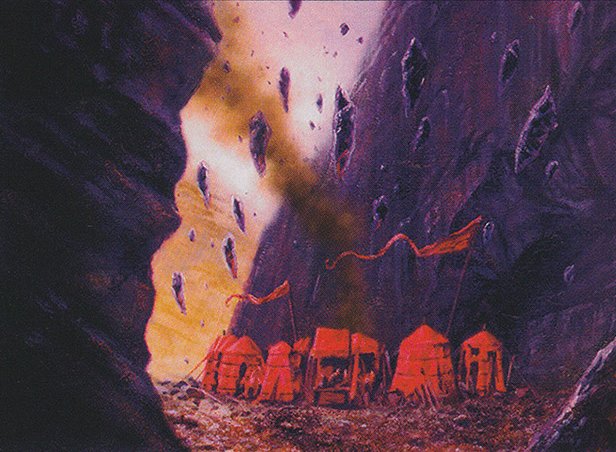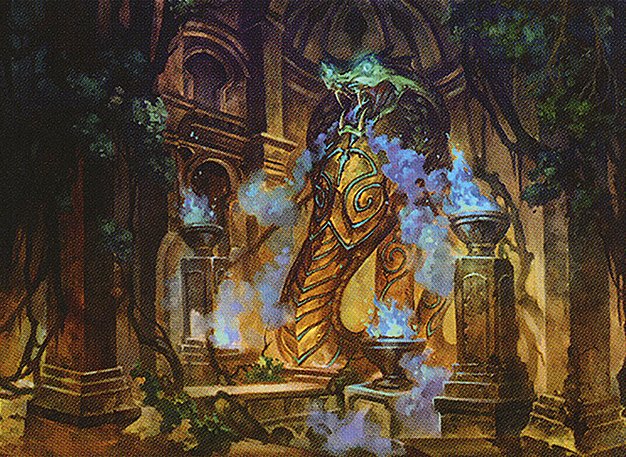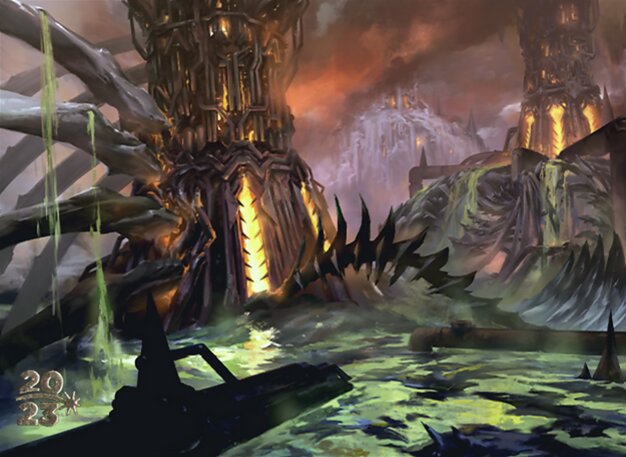Failure // Comply MTG Card
| Card sets | Released in 3 setsSee all |
| Mana cost | |
| Converted mana cost | 3 |
| Rarity | Rare |
| Type | Sorcery |
| Abilities | Aftermath |
Key Takeaways
- Failure // Comply generates card advantage by disrupting your opponent’s plays at instant speed.
- It demands strategic deck-building due to its specific mana requirements and discard cost.
- In a varied MTG meta, its unique two-step disruption makes it a valuable card to consider.
Text of card
Aftermath (Cast this spell only from your graveyard. Then exile it.) Choose a card name. Until your next turn, your opponents can't cast spells with the chosen name.
Card Pros
Card Advantage: Failure // Comply helps you to interrupt your opponent’s strategy by returning a spell to their hand. This can effectively negate their play for the turn, giving you an advantageous shift in card economy.
Resource Acceleration: Although this card doesn’t directly produce mana or tokens, bouncing a spell back to an opponent’s hand can set them back on resources, especially if they’ve tapped out to pay for the initial spell.
Instant Speed: The strength of Failure // Comply is significantly amplified by its instant speed. This timing flexibility allows you the luxury of acting in response during an opponent’s turn or after they have committed significant resources to a spell, ensuring you gain the upper hand.
Card Cons
Discard Requirement: When playing Failure // Comply, one constraint is the necessity to discard another card. This can often place players in a tough spot, especially if they’re already struggling to maintain a healthy hand size, potentially stripping them of crucial resources at critical moments.
Specific Mana Cost: The casting cost for Failure // Comply demands both blue and white mana. This specificity can hinder deck-building flexibility and may not seamlessly fit into a strategy that isn’t specifically tailored to accommodate such mana requirements.
Comparatively High Mana Cost: With a combined mana value for both halves of the card, Failure // Comply requires a substantial investment. In the fast-paced dynamic of modern MTG play, the card’s cost sits on the higher end for its provided effects, potentially making it a less desirable choice compared to other, more cost-efficient interaction spells available.
Reasons to Include in Your Collection
Versatility: “Failure // Comply” serves multiple roles in your deck, allowing you to disrupt opponent’s plans while keeping a backup option to deal with problematic spells.
Combo Potential: This card pairs well with strategies that capitalize on returning spells to their owners’ hands, giving you the chance to create seamless interactions within your deck’s combo line-up.
Meta-Relevance: In a game state where counter-strategies and the right timing can swing the game, “Failure // Comply” can be a tactical choice to navigate through a diverse and ever-changing competitive landscape.
How to beat
Failure // Comply is a unique split card that combines both disruption and delay tactics in Magic: The Gathering. Playing against it requires precise timing and careful consideration of your resources. To effectively counter this card, focus on developing a strategy that either outruns the tempo set by Failure or deploys spells that cannot be targeted. Additionally, employing cards with hexproof can nullify the bounce effect of Failure, while leveraging instant speed removal can disrupt your opponent’s plan to Comply on their next turn. It’s crucial to stay ahead in card advantage, as this ensures you don’t fall behind after bouncing a spell back to hand.
Employing a proactive approach is key. Cards such as Veil of Summer can offer protection against the blue half of the split card by making your spells uncounterable. Furthermore, a diverse array of threats increases the difficulty for your opponent to effectively use Comply, as they may not have an appropriate spell to delay. Ultimately, beating Failure // Comply comes down to mindful play, preserving your crucial spells, and not overcommitting on the board where a timely return to hand can turn the tide in your opponent’s favor.
Cards like Failure // Comply
In the realm of versatile control spells within Magic: The Gathering, Failure // Comply is a unique modal card. Its closest relative might be Remand, which also returns a spell to its owner’s hand, giving you a tempo advantage. However, where Remand allows for immediate card replacement by drawing a card, Failure // Comply offers a strategic delay via its second half, Comply, disrupting opponents’ plans for their next turn.
Another comparative spell is Delay, which also handles spells by not countering them outright but suspending them for two turns. Delay can buy you crucial time, akin to Failure // Comply, but without the second act. On the utility spectrum, Unsubstantiate stands out, too, as it can target both spells and creatures. Though it doesn’t provide the additional command directive, it’s the flexibility that might give it an edge in certain gameplay situations.
When evaluating maneuverability and control, Failure // Comply certainly holds its ground in the tableau of strategic spells. It gives players a unique two-step approach to disrupting foes, a valuable asset in games intending to outpace and outmaneuver opponents in Magic: The Gathering.
Cards similar to Failure // Comply by color, type and mana cost
Where to buy
If you're looking to purchase Failure // Comply MTG card by a specific set like Amonkhet and Amonkhet Promos, there are several reliable options to consider. One of the primary sources is your local game store, where you can often find booster packs, individual cards, and preconstructed decks from current and some past sets. They often offer the added benefit of a community where you can trade with other players.
For a broader inventory, particularly of older sets, online marketplaces like TCGPlayer, Card Kingdom and Card Market offer extensive selections and allow you to search for cards from specific sets. Larger e-commerce platforms like eBay and Amazon also have listings from various sellers, which can be a good place to look for sealed product and rare finds.
Additionally, Magic’s official site often has a store locator and retailer lists for finding Wizards of the Coast licensed products. Remember to check for authenticity and the condition of the cards when purchasing, especially from individual sellers on larger marketplaces.
Below is a list of some store websites where you can buy the Failure // Comply and other MTG cards:
- eBay
- TCG Player
- Card Kingdom
- Card Market
- Star City Games
- CoolStuffInc
- MTG Mint Card
- Hareruya
- Troll and Toad
- ABU Games
- Card Hoarder Magic Online
- MTGO Traders Magic Online
See MTG Products
Printings
The Failure // Comply Magic the Gathering card was released in 3 different sets between 2017-04-28 and 2020-08-13. Illustrated by Jason A. Engle.
| # | Released | Name | Code | Symbol | Number | Frame | Layout | Border | Artist |
|---|---|---|---|---|---|---|---|---|---|
| 1 | 2017-04-28 | Amonkhet | AKH | 221 | 2015 | Aftermath | Black | Jason A. Engle | |
| 2 | 2017-04-29 | Amonkhet Promos | PAKH | 221s | 2015 | Aftermath | Black | Jason A. Engle | |
| 3 | 2020-08-13 | Amonkhet Remastered | AKR | 235 | 2015 | Aftermath | Black | Jason A. Engle |
Legalities
Magic the Gathering formats where Failure // Comply has restrictions
| Format | Legality |
|---|---|
| Historicbrawl | Legal |
| Historic | Legal |
| Legacy | Legal |
| Oathbreaker | Legal |
| Gladiator | Legal |
| Pioneer | Legal |
| Commander | Legal |
| Modern | Legal |
| Vintage | Legal |
| Duel | Legal |
| Explorer | Legal |
| Penny | Legal |
| Timeless | Legal |
Rules and information
The reference guide for Magic: The Gathering Failure // Comply card rulings provides official rulings, any errata issued, as well as a record of all the functional modifications that have occurred.
| Date | Text |
|---|---|
| 2017-04-18 | A spell with aftermath cast from a graveyard will always be exiled afterward, whether it resolves, it’s countered, or it leaves the stack in some other way. |
| 2017-04-18 | All split cards have two card faces on a single card, and you put a split card onto the stack with only the half you’re casting. The characteristics of the half of the card you didn’t cast are ignored while the spell is on the stack. For example, if an effect prevents you from casting green spells, you can cast Destined of Destined // Lead, but not Lead. |
| 2017-04-18 | Each split card has two names. If an effect instructs you to choose a card name, you may choose one, but not both. |
| 2017-04-18 | Each split card is a single card. For example, if you discard one, you’ve discarded one card, not two. If an effect counts the number of instant and sorcery cards in your graveyard, Destined // Lead counts once, not twice. |
| 2017-04-18 | If a copy of a spell is returned to its owner’s hand, it’s moved there, then it will cease to exist as a state-based action. |
| 2017-04-18 | If a spell is returned to its owner’s hand, it’s removed from the stack and thus will not resolve. The spell isn’t countered; it just no longer exists. This works against a spell that can’t be countered. |
| 2017-04-18 | If another effect allows you to cast a split card with aftermath from a graveyard, you may cast either half. If you cast the half that has aftermath, you’ll exile the card if it would leave the stack. |
| 2017-04-18 | If another effect allows you to cast a split card with aftermath from any zone other than a graveyard, you can’t cast the half with aftermath. |
| 2017-04-18 | If you cast the first half of a split card with aftermath during your turn, you’ll have priority immediately after it resolves. You can cast the half with aftermath from your graveyard before any player can take any other action if it’s legal for you to do so. |
| 2017-04-18 | If you choose the name of a split card, you choose one name, not both. For example, you could name Failure or Comply, but not Failure // Comply. Opponents are still allowed to cast the half you didn’t choose. |
| 2017-04-18 | Split cards with aftermath have a new frame treatment—the half you can cast from your hand is oriented the same as other cards you’d cast from your hand, while the half you can cast from your graveyard is a traditional split card half. This frame treatment is for your convenience and has no rules significance. |
| 2017-04-18 | While not on the stack, the characteristics of a split card are the combination of its two halves. For example, Destined // Lead is a green and black card, it is both an instant card and a sorcery card, and its converted mana cost is 6. This means that if an effect allows you to cast a card with converted mana cost 2 from your hand, you can’t cast Destined. This is a change from the previous rules for split cards. |
| 2017-04-18 | You choose a card name as Comply resolves, not as you cast it. Opponents can’t cast spells with that name after you’ve chosen it. |
| 2017-04-18 | You may choose the name of a land card. Cards with that name can still be played since lands are never cast. |
| 2017-07-14 | Once you’ve started to cast a spell with aftermath from your graveyard, the card is immediately moved to the stack. Opponents can’t try to stop the ability by exiling the card with an effect such as that of Crook of Condemnation. |
